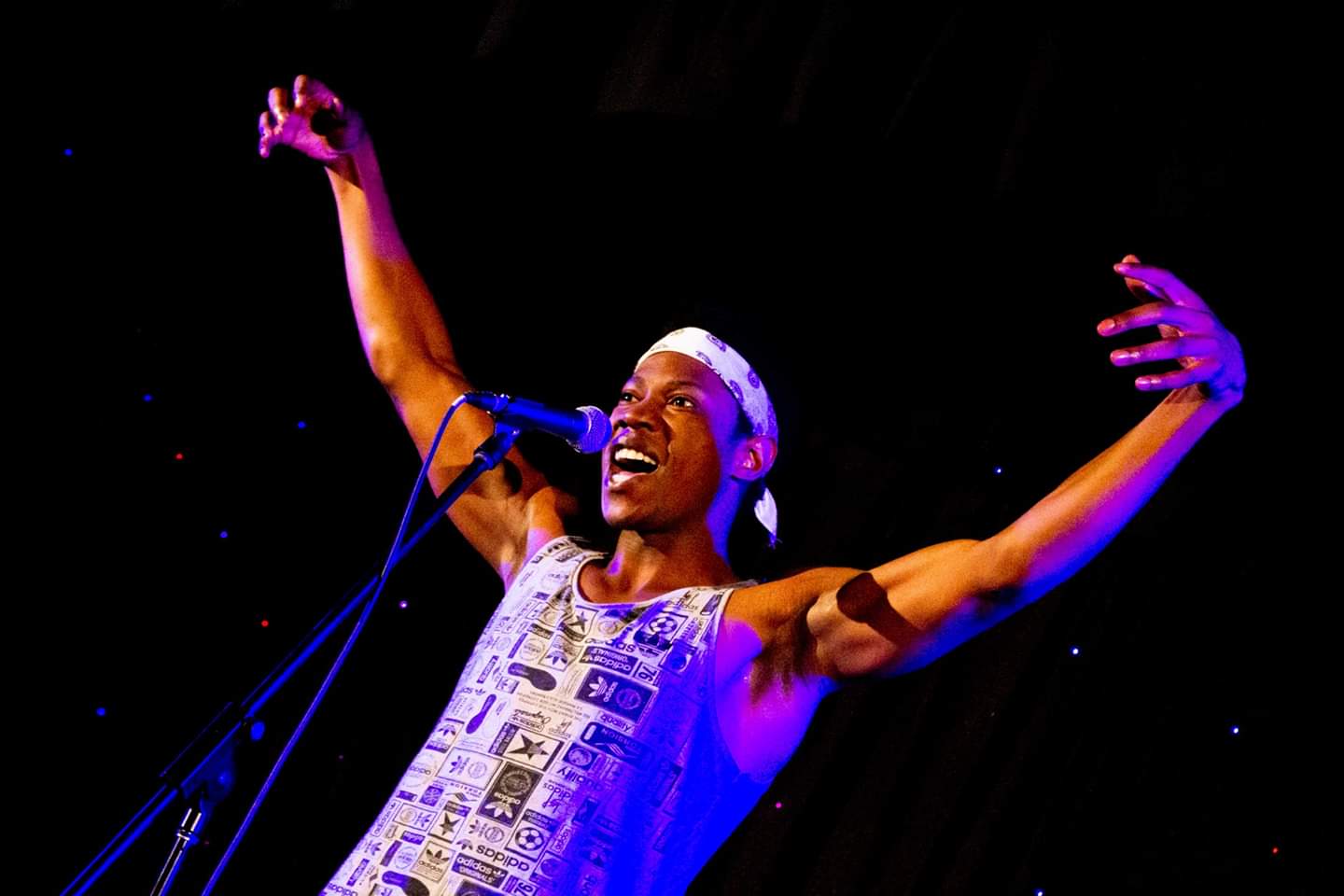As the world’s verbal gladiators meet, Hatch‘s Thabani Tshuma is among contenders at the International World Poetry Slam.
It is trembling hands and a racing heart. It is nerves, the kind that never leave no matter how many times you take the stage. It is a necessity, a need, not only to speak but also to be heard.
In this setting, this arena, that we verbal gladiators come together to battle it out for the title of Individual World Poetry Slam champion.

To me, the title of ‘poet’ has ties to a bygone era, one of romantic sonnets set to a Victorian period backdrop.
In Melbourne, the scene is multifaceted; you have your highbrow literary page poets, your weeknight pub poets, your outback bush poets and – as is becoming more popular – your slam poets.
I started slamming almost accidentally, in a whirlwind performance poetry trajectory that started with being drawn as a wild card entry into the 2018 Melbourne Spoken Word Prize and ended with winning the Slamalamadingdong Grand Slam in San Diego five months later.
Slam poetry is a genre of spoken word and performance poetry defined by being a regulated competition. The concept began in Chicago in the 1980s and has since become one of the most accessible forms of poetry delivery.
A standard slam involves poets performing to a 3-minute time limit and scored out of 10 by a panel of judges randomly selected from the audience.
Beginning in 2004, the IWPS was initially a Poetry Slam Inc. (PSI) coordinated event. But this year, after PSI backed out, former IWPS champion and world-renowned poet Rudy Francisco took on the responsibility of reviving the competition.
With a total of 74 poets competing, the preliminary bouts were carried out over two days divided among five venues throughout San Diego. It culminatinated in the top 14 poets dueling it out for glory on the final stage.

The moments before performing are normally charged with a blend of anxiety and excitement. Both manifest in the same way physically and knowing which is which can make or break a show. The time constraints of a slam and the fact that you will be immediately judged for your work heighten the tension, as does knowing your competition is made up of the top poets from around the world.
I approach each bout with strategic caution, the random draw determining our order of sacrifice.
If drawn first you risk the pitfall of score creeping – where, as the night progresses, the judges become intoxicated by the atmosphere and begin to score poets higher and higher. Hosts continually remind the audience to “applaud the poet and not the scores”. The idea of rating art becomes controversial; each poet brings a unique style and narrative and to hold them up comparatively becomes akin to taking a hip-hop song and country song and rating them within the same genre.
An unparalleled pool of talent means that every performer brings an outstanding level of writing and stage presence, which initially is intimidating but as I settle into the groove turns to inspiration and gratitude to be sharing the stage with an incredible line up that otherwise would not be all gathered in one place were it not for this specific competition.
The night before the final 14 take the stage, poets gather for NUPIC – the National Underground Poetry Individual competition. Organized like a Prohibition speakeasy, alerts with location are sent out via text, poets wishing to compete buy-in for $100 to the winner take all pool. The slam is judged by the overall audience cheering and prohibits any photographs or videos. NUPIC offers a sense of balance from the intensity of the formal competition, it almost feels to be separate from an audience observed performance as the crowd is almost exclusively made up of the competing poets.
A lot of my content draws from personal experiences, looking at addiction, generational trauma and the plights of the diaspora. It is an act of vulnerability to share them however also a necessity to get these conversations started.
In the American context, spoken word has become a space for social discourse, with poets performing pieces on topics such as politics, race, mental illness, and adversity. This is the cathartic benefit of poetry as venues and competitions create a space for artists to express their truths.
The culture is a welcoming one, where being either an audience member or poet; you are invited into the family. It is an unsaid rule that almost makes these spaces sacred. The words shared are reflections of each poet’s individual journey and a distillation of the relatable collective experience.
Comparatively, the Australian performance poetry scene is still in its infancy and while the talent pool is large the number of performance venues and larger scale competitions is still growing, The largest competition being the Australian Poetry Slam, a national event founded in 2005.
In an unprecedented twist, the San Diego finals resulted in a three-way tie with Jay Ward, Breeze the Poet and Akeem Olaj splitting the title. This was testament to the tightness of the competition and how 1st place and 74th were separated by no more than a 6 point difference out of 30.

Ranking 48th out of 74 is an achievement larger than I went in imagining was possible. Seeing the calibre of global performance has irrevocably evolved the way I approach my craft. I will apply the tricks of the trade to our local scene.


